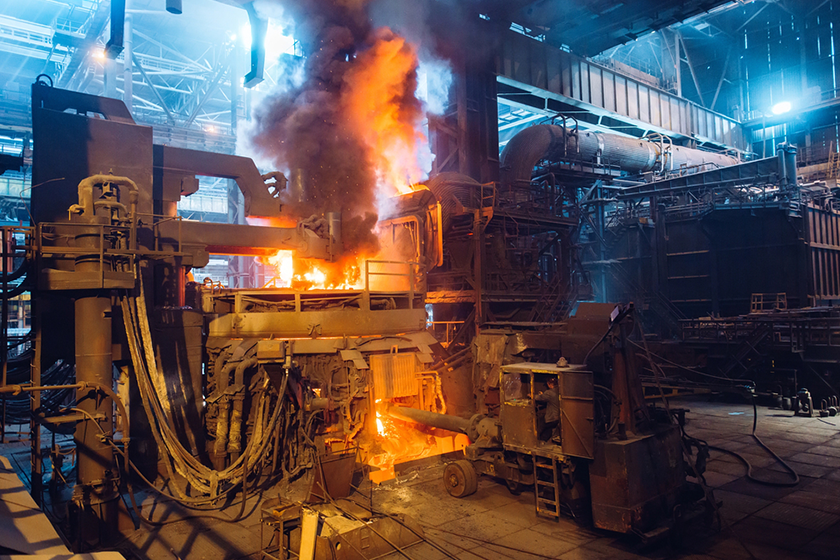The 7 Primary Causes Of Industrial Fires And Explosions

Industrial fires and explosions can have devastating consequences, affecting both people and property. While safety measures have improved over the years, understanding the root causes of these incidents remains critical for preventing them. We will highlight the primary causes of industrial fires and explosions and how proper fire safety measures can mitigate risks.
Flammable Liquids and Gases
One of the leading causes of industrial fires is the improper handling or storage of flammable liquids and gases. Many industrial facilities use substances like gasoline, propane, and chemical solvents. These materials can ignite easily when exposed to heat, sparks, or open flames.
Leaking containers, faulty valves, or poor ventilation can create a dangerous environment where vapors accumulate. If these vapors encounter a source of ignition, an explosion or fire can occur rapidly, often without warning.
How to Prevent Flammable Liquid and Gas Fires:
- Ensure proper storage in approved containers.
- Regularly inspect equipment and containers for leaks.
- Maintain adequate ventilation in areas where flammable substances are used.
Electrical Hazards
Faulty wiring, overloaded circuits, and equipment malfunctions are all common causes of industrial fires. Electrical systems in industrial settings are often complex, with a high demand for power. Without proper maintenance, these systems can become a fire hazard.
Damaged insulation, exposed wires, and short circuits can spark a fire, especially when there are flammable materials nearby. In some cases, aging equipment or improper installation can lead to electrical failures that trigger fires.
How to Prevent Electrical Fires:
- Schedule regular inspections of electrical systems.
- Replace damaged wiring and faulty equipment immediately.
- Avoid overloading electrical circuits.
Hot Work Processes
Hot work refers to activities like welding, cutting, or grinding that produce heat, sparks, or flames. Common in many industrial environments, these processes pose significant fire risks. Sparks landing on flammable materials can quickly ignite a fire.
The danger is even greater when hot work is conducted near flammable gases or vapors, which can lead to explosive fires. Proper safety precautions, such as using flame-retardant blankets or keeping fire extinguishers nearby, are essential during hot work operations.
How to Minimize Hot Work Risks:
- Perform hot work in designated areas free of flammable materials.
- Use protective equipment, such as spark shields.
- Train workers on safe hot work practices.
Dust and Debris
Industrial fires can also result from the buildup of dust and debris in certain environments. Fine particles of materials like wood, metal, and chemicals can accumulate in the air or on surfaces. When these particles are dispersed into the air, they can form an explosive mixture.
A single spark from machinery or static electricity can ignite the dust cloud, causing an explosion. This risk is especially high in industries like woodworking, metal fabrication, and food processing.
How to Prevent Dust-Related Fires:
- Implement regular cleaning schedules to prevent dust buildup.
- Use dust collection systems to minimize airborne particles.
- Ground and bond equipment to prevent static electricity.
Equipment and Machinery Failures
Industrial equipment and machinery, especially those that generate heat or friction, can pose a fire hazard if they malfunction. Overheating motors, conveyor belts, and other machinery components can lead to industrial fires if not properly maintained.
How to Prevent Machinery Fires:
- Follow a strict maintenance schedule for all equipment.
- Check machinery for signs of wear and overheating.
- Install temperature monitoring systems to detect potential overheating early.
Human Error
Human error is another leading cause of industrial fires and explosions. This can include improper handling of hazardous materials, failure to follow safety protocols, or mistakes during equipment operation.
How to Reduce Human Error:
- Provide comprehensive safety training for all employees.
- Reinforce the importance of following safety protocols.
- Ensure clear communication and supervision during dangerous tasks.
Combustible Materials
Many industrial settings contain large quantities of combustible materials, such as paper, wood, textiles, and chemicals. Improper storage or handling of these materials can lead to fires. For example, storing flammable chemicals too close to heat sources or not properly securing combustible materials can create a dangerous situation.
How to Manage Combustible Materials Safely:
- Store materials in fire-resistant containers and away from heat sources.
- Regularly inspect storage areas for potential fire hazards.
- Ensure that proper fire extinguishing systems are in place.
Reducing Industrial Fire Risks
Industrial fires are a serious threat, but with the right safety measures, many of the risks can be minimized. From handling flammable liquids and electrical systems to maintaining equipment and providing employee training, many steps can be taken to protect your facility.
Our team is ready to support your industrial workplace with fire safety services and preventative maintenance. Let us work together to reduce the risks of industrial fires and protect your business, employees, and assets.
Reach out to us today to learn more about how we can support your fire safety efforts.
